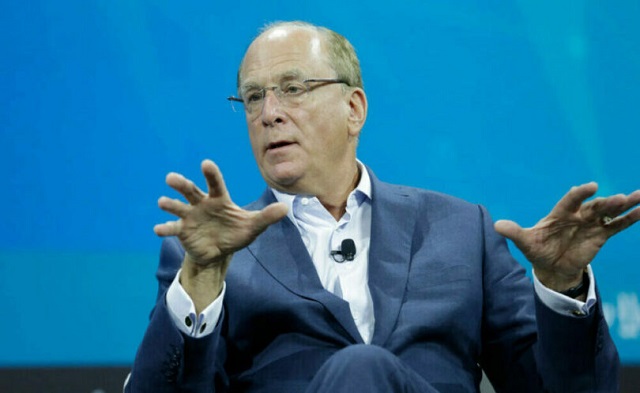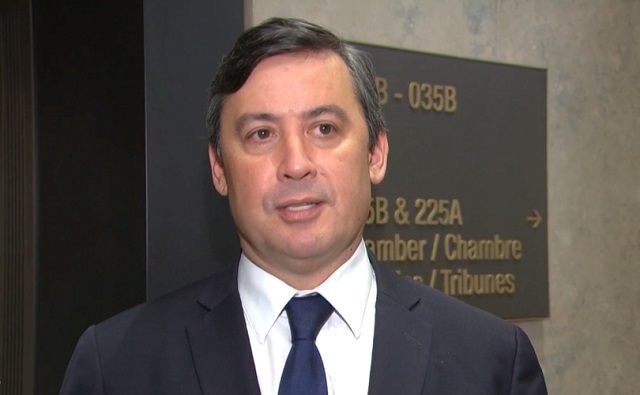Opinion
2021 Statistics Canada census shows Red Deer has 37 more residents than 2015 municipal census

According to Statistics Canada, Alberta’s population sits at 4,262,635 residents, an increase of 4.8% since 2017.
Here in Central Alberta, we saw Blackfalds’ population increase by 12.2% from 9,328 to 10,470, Sylvan Lake’s population increase by 8% from 14,816 to 15,995, Penhold’s population increase by 6% from 3,287 to 3,484, Lacombe’s population increase by 2.6% from 13,051 to 13,396, Innisfail’s population increase by 1.8% from 7,847 to 7,985 and Red Deer’s population increase by 0.4% from 100,418 to 100,844.
Red Deer’s municipal census of 2015 had Red Deer’s population at 100,807 so we now have 37 more residents than we did 7 years ago.
The Statistics Canada census says we have 100,844 residents, an increase of 427 residents since 2017 but it also shows we have 43,404 homes an increase of 3419 homes, compared to 39,985 homes in 2017.
That is 8 new homes for every new resident.
Basically, we have the same number of taxpayers, paying ever increasing taxes for ever increasing services spread over more area. In 2017 1,000 residents would be paying property taxes on 398 homes, in 2021 those 1,000 residents would be paying taxes on 431 homes.
If you look at the faster growing communities, Blackfalds, Sylvan Lake, Lacombe, and you would also see that they invested in their recreational facilities at exponentially larger rates per capita than Red Deer. Any correlation?
The thought is that for every mile from the centre of the city, you build a home the annual maintenance costs for the city increases by $1,000, whether that still remains true, I do not know. If a new neighbourhood is built without growth and if maintenance costs grow exponentially, then does it makes sense to keep adding neighbourhoods, building new houses and adding new roads, sidewalks, bus routes, infrastructure and services.
I am just asking for a breather. According to federal and municipal censuses we have grown by a total of 37 people since 2015, but we have built new neighbourhoods, roads, sidewalks, facilities, depreciated our home assessment values, and increased our taxes.
The province has grown 12 times faster than Red Deer. Blackfalds has grown 30.5 times faster. Penhold is growing at 24 times the rate of Red Deer.
Time for a rethink? Just asking.

Fraser Institute
Bill Maher is right about Canadian health care
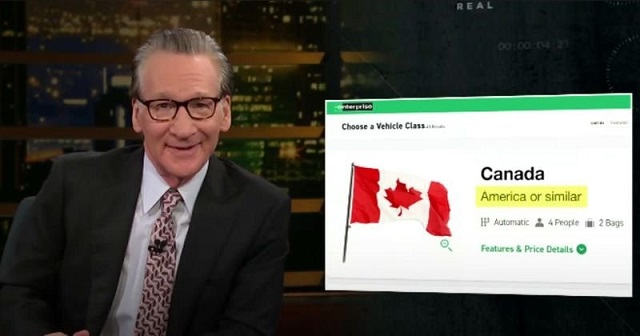
From the Fraser Institute
Recently, popular American comedian and talk show host, Bill Maher, took aim at some of Canada’s public policy failings in one of his monologues. In entertaining fashion, Maher highlighted our high housing costs, unemployment rates and “vaunted” health-care system.
Indeed, citing work published by the Fraser Institute, he explained that after adjusting for age, Canada spends 13.3 per cent of our economy on health care (2020), the highest level of spending by a developed country with universal coverage that year. And that Canada has some of the poorest access to timely appointments with family doctors when compared to our peers.
Unfortunately, while that’s where his segment on health care ended, the bad news for the Canadian system doesn’t stop there.
On top of Canada continuing to be one of the most expensive universal health-care systems in the world, we get little in return when it comes to both available medical resources and wait times. For example, among high-income countries with universal health care, Canada has some of the lowest numbers of physicians, hospital beds, MRI machines and CT scanners.
And in Canada, only 38 per cent of patients report seeing a specialist within four weeks (compared to 69 per cent in the Netherlands) and only 62 per cent report receiving non-emergency surgery within four months (compared to 99 per cent in Germany).
Unfortunately, wait times in Canada aren’t simply long compared to other countries, they’re the longest they’ve ever been. Last year the median wait for a Canadian patient seeking non-emergency care reached 27.7 weeks—nearly three times longer than the 9.3 week-wait Canadians experienced three decades ago.
This raises the obvious question. How do other countries outperform Canada’s health-care system while also often spending less as a share of their economies? In short, their approach to universal health care, and in particular their relationship with the private sector, departs drastically from the approach here at home.
Australia, for example, partners with private hospitals to deliver the majority (58.6 per cent) of all non-emergency surgeries within its universal health-care system. Australia also spends less of its total economy (i.e. GDP) on health care but outperforms Canada on every measure of timely care.
Even with restrictions on the private sector, Canada has some limited experience that should encourage policymakers to embrace greater private-sector involvement. Saskatchewan, for example, contracted with private surgical clinics starting in 2010 to deliver publicly-funded services as part of a four-year initiative to reduce wait times, which were among the longest in the country. Between 2010 and 2014, wait times in the province fell from 26.5 weeks to 14.2 weeks. After the initiative ended, the province’s wait times began to grow.

More recently, Quebec, which has some of the shortest wait times for medical services in the country, contracts out one out of every six day-surgeries to private clinics within the publicly-funded health-care system.
Maher’s monologue, which was viewed by millions online, highlighted the key failings of Canada’s health-care system. If policymakers in Ottawa and the provinces want to fix Canadian health care, they must learn from other countries that deliver universal health-care at the same or even lower cost, often with better access and results for patients.
Author:
Censorship Industrial Complex
Now We Are Supposed to Cheer Government Surveillance?

From the Brownstone Institute
BY
The powers that be are leading us from the Declaration of Internet Freedom from simpler times (2012), to the Declaration on the Future of the Internet. Do we need to say more than the word “freedom” has been left out of the future?
They are wearing us down with shocking headlines and opinions. They come daily these days, with increasingly implausible claims that leave your jaw on the floor. The rest of the text is perfunctory. The headline is the takeaway, and the part designed to demoralize, deconstruct, and disorient.
A few weeks ago, the New York Times told us that “As It Turns Out, the Deep State Is Pretty Awesome.” These are the same people who claim that Trump is trying to get rid of democracy. The Deep State is the opposite of democracy, unelected and unaccountable in every way, impervious to elections and the will of the people. Now we have the NYT celebrating this.
And the latest bears notice too: “Government Surveillance Keeps Us Safe.” The authors are classic Deep Staters associated with Hillary Clinton and George W. Bush. They assure us that having an Orwellian state is good for us. You can trust them, promise. The rest of the content of the article doesn’t matter much. The message is in the headline.
Amazing isn’t it? You have to check your memory and your sanity. These are the people who have rightly warned about government infringements on privacy and free speech for many decades dating way back.
And now we have aggressive and open advocacy of exactly that, mainly because the Biden administration is in charge and has only months to put the final touches on the revolution in law and liberty that has come to America. They want to make it all permanent and are working furiously to make it so.
Along with routine warrantless surveillance, not only of possible bad guys but everyone, comes of course censorship. A few years ago, this seemed to be intermittent, like the biased and arbitrary actions of rogue executives. We objected and denounced but generally assumed that it was aberrant and going away over time.
Back then, we had no idea of the scale and the ambition of the censors. The more information that is coming out, the more the full goal is coming into view. The power elite want the Internet to operate like the controlled media of the 1970s. Any opinion that runs contrary to regime priorities will be blocked. Websites that distribute alternative outlooks will be lucky to survive at all.
To understand what’s going on, see the White House document called Declaration on the Future of the Internet. Freedom is barely a footnote, and free speech is not part of it. Instead it is to be a “rules-based digital economy” governed “through the multistakeholder approach, whereby governments and relevant authorities partner with academics, civil society, the private sector, technical community and others.”
This whole document is an Orwellian replacement of the Declaration of Internet Freedom from 2012, which was signed by Amnesty International, the ACLU, and major corporations and banks. The first principle of this Declaration was free speech: don’t censor the Internet. That was 12 years ago and the principle is long forgotten. Even the original website has been dead since 2018. It is now replaced with one word: “Forbidden.”
Yes, that’s chilling but it is also perfectly descriptive. In all mainline Internet venues, from search to shopping to social, freedom is no longer the practice. Censorship has been normalized. And it is taking place with the direct involvement of the federal government and third-party organizations and research centers paid for by tax dollars. This is very clearly a violation of the First Amendment but the new orthodoxy in elite circles is that the First Amendment simply does not apply to the Internet.
This issue is making its way through litigation. There was a time when the decision would not be in question. No more. Several or more Supreme Court Justices do not seem to understand even the meaning of free speech.
The Prime Minister of Australia made the new view clear in his statement in defense of fining Elon Musk. He said that social media has a “social responsibility.” In today’s parlance, this means they must obey the government, which is the only proper interpreter of the public interest. In this view, you simply cannot allow people to post and say things that are contrary to regime priorities.
If the regime cannot manage public culture, and manipulate the public mind, what’s it there for? If it cannot control the Internet, its managers believe, it will lose control of the whole of society.
The crackdown is intensifying by the day. Representative Thomas Massie shot a video after the Ukraine vote for a total foreign aid package of an astonishing $95 billion. Vast numbers of Democrats on the House floor waved Ukrainian flags, which you might suppose smacks of treason. The Sergeant-at-Arms wrote Massey directly to tell him to take down the video or get a $500 fine.
Instead of fining democrats for waving flags, the House Sergeant at Arms just called and said I will be fined $500 if I don’t delete this video post.
Mike Johnson really wants to memory hole this betrayal of America. https://t.co/5DPWoo4cLw
— Thomas Massie (@RepThomasMassie) April 23, 2024
True, the rules say you cannot film in a way that “impairs decorum,” but he simply took out his phone. The decorum was disturbed by masses of lawmakers waving a foreign flag. So Massie refused. After all, the entire disgraceful scene was on C-SPAN but the presumption is that no one watches that but everyone reads X, which is probably true.
Clearly, GOP speaker Mike Johnson doesn’t want his perfidy this well-advertised. After all, it was he who shepherded the authorization of spying on the American people using Section 702 of FISA, which 99 percent of GOP voters opposed. Just who do these people think they are there to represent?
It’s actually astonishing to do a conjectural history in which Elon did not buy Twitter. The regime monopoly on social media today would be 99.5 percent. Then the handful of alternative venues could be shut down one by one, just as with Parler a few years ago. Under this scenario, closing the social end of the Internet would not be that difficult. The domains are another matter but those could be banned gradually over time.
But with X rising in a meteoric way since Elon’s takeover, that is now far more difficult. He has made it his mission to remind the world of core principles. This is why he told the boycotting advertisers to jump in a lake and why he refused to comply with every dictate by the despotic head of the Brazilian Supreme Court. Daily he is showing what it means to stand up for principle in extremely hard times.
Glenn Beck puts it well: “What Elon Musk is doing in both Brazil and Australia is this: He is simply standing where the Free world used to stand. They have moved, not him. They are the radicals not him. HAVE THE COURAGE to remain standing, unmovable in the truth that can never change and you will be targeted and eventually change the world.”
Censorship is not an end unto itself. The purpose is control of the people. That is also the purpose of surveillance. It is not, rather obviously, to protect the public. It is to protect the state and its industrial partners against the people. Of course, just as in every dystopian film, they always pretend otherwise.
Somehow – call me naive – I just didn’t expect the New York Times to be all-in on the immediate establishment of the surveillance state and universal censorship by the “awesome” Deep State. But think of this. If the NYT can be fully captured by this ideology, and probably captured by the money that goes with it, so can any other institution. You have probably noticed a similar editorial line being pushed by Wired, Mother Jones, Rolling Stone, Salon, Slate, and other venues, including the entire suite of publications owned by Conde Nast including Vogue and GQ magazine.
“Don’t bother me with your crazed conspiracy theory, Tucker.”
I get the point. What is your explanation?
-
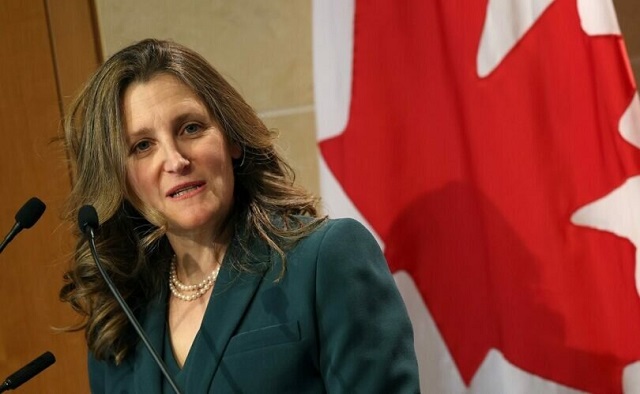
 Housing2 days ago
Housing2 days agoTrudeau’s 2024 budget could drive out investment as housing bubble continues
-

 Alberta2 days ago
Alberta2 days agoAlberta government should create flat 8% personal and business income tax rate in Alberta
-

 Censorship Industrial Complex2 days ago
Censorship Industrial Complex2 days agoDesperate Liberals move to stop MPs from calling Trudeau ‘corrupt’
-

 Great Reset2 days ago
Great Reset2 days agoTerrorists Welcome: Chronic counterterrorism lapses at the border demand investigation
-

 Health21 hours ago
Health21 hours agoTransgender activists are threatening the author of scathing UK report on child ‘sex changes’
-

 National2 days ago
National2 days agoLow and middle income Canadians hit hardest by high marginal effective tax rates
-
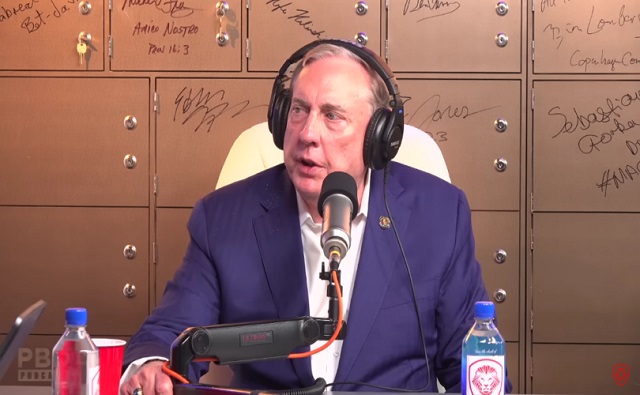
 conflict2 days ago
conflict2 days agoCol. Douglas Macgregor: US is ‘facing disaster’ as it funds overseas wars while bankrupt
-

 Energy2 days ago
Energy2 days agoA Wealth-Creating Way of Reducing Global CO2 Emissions







